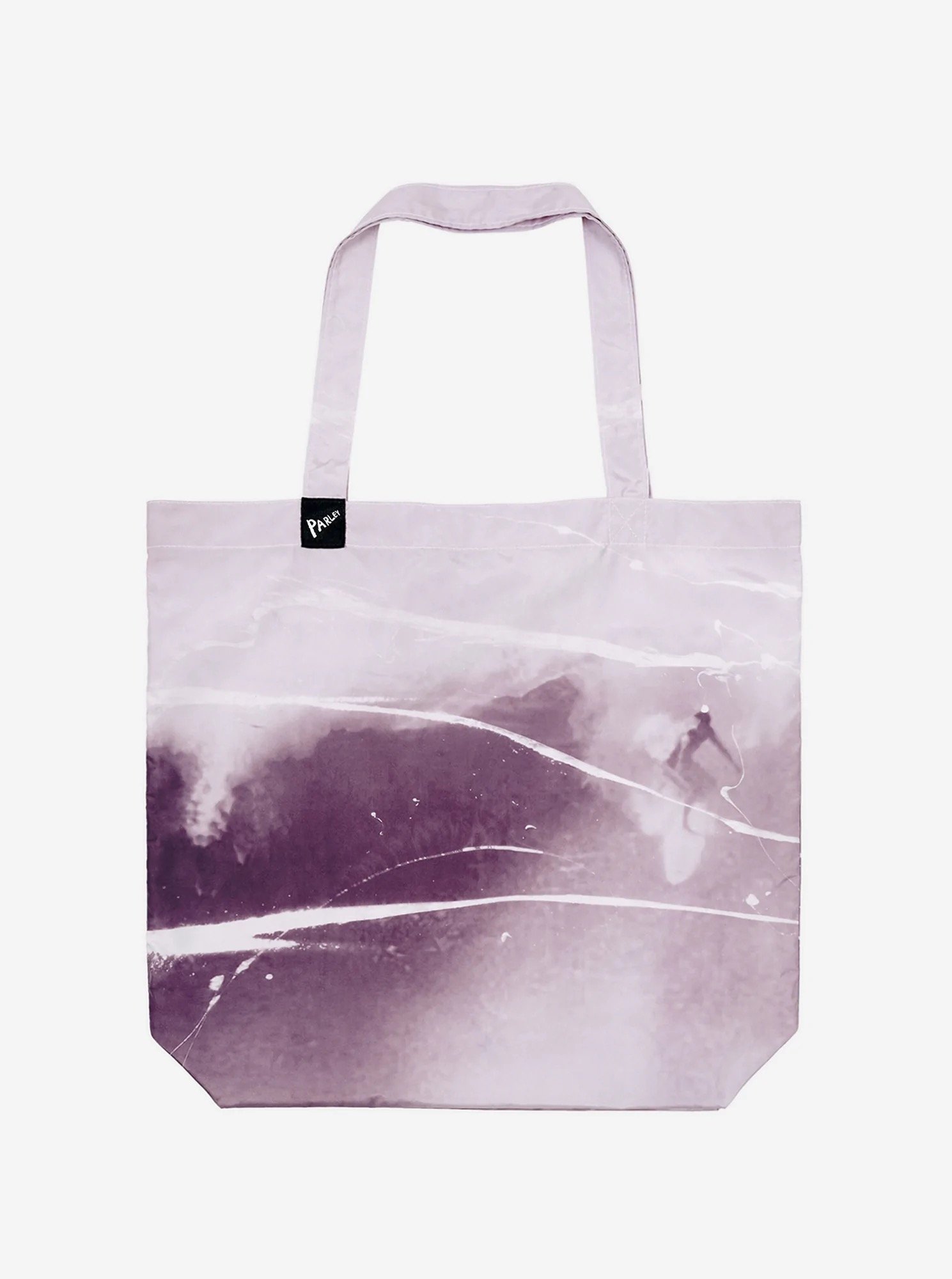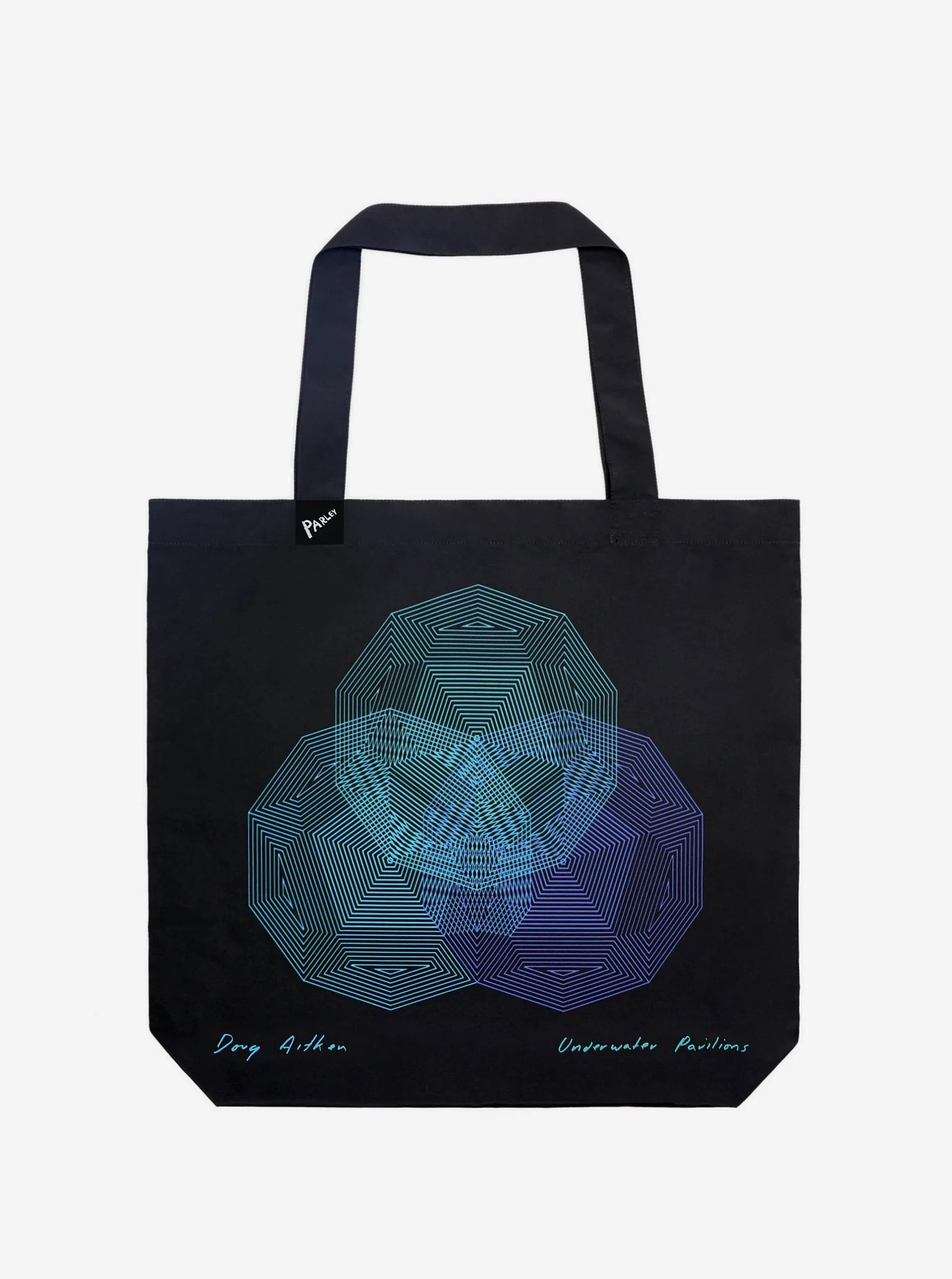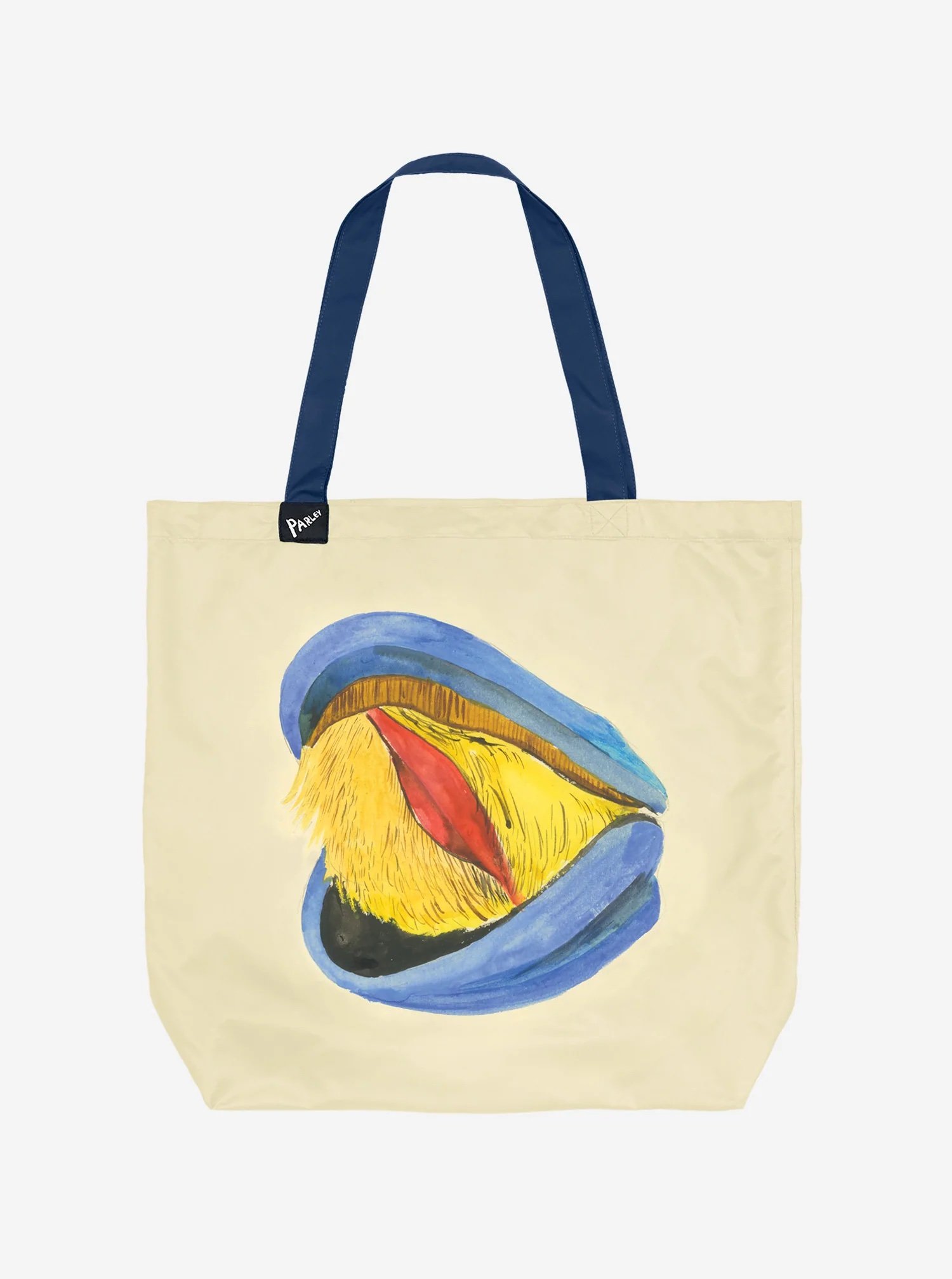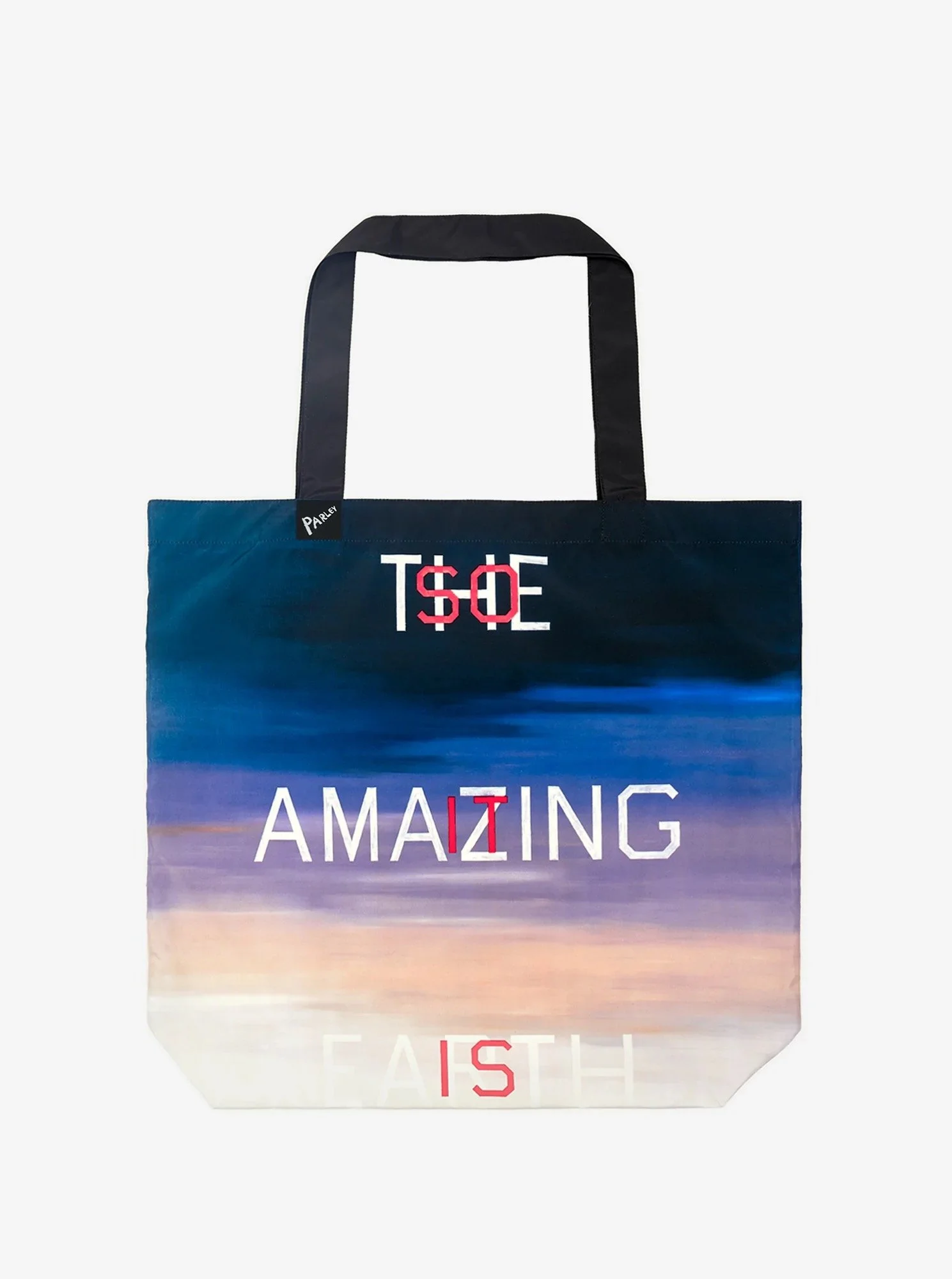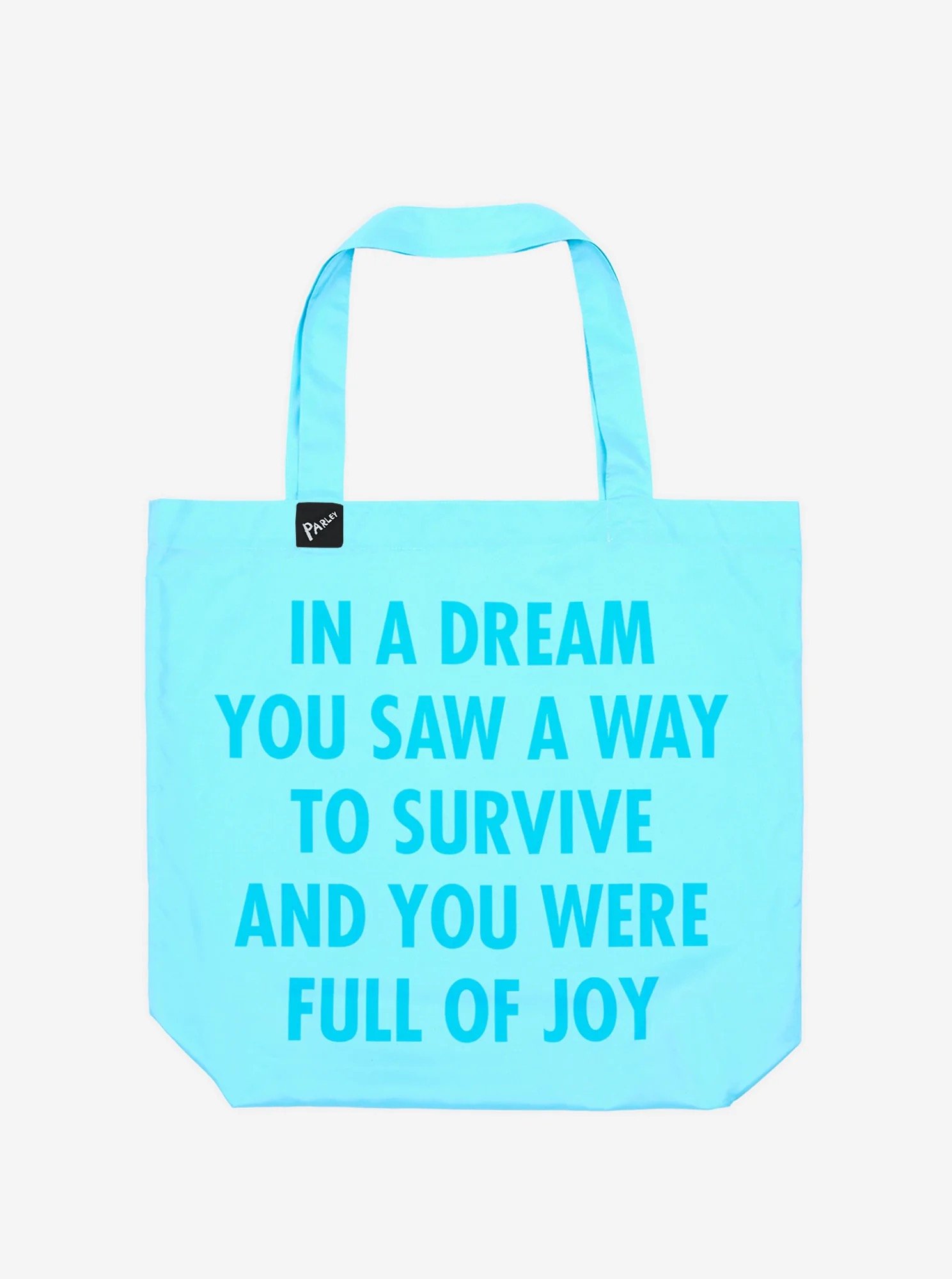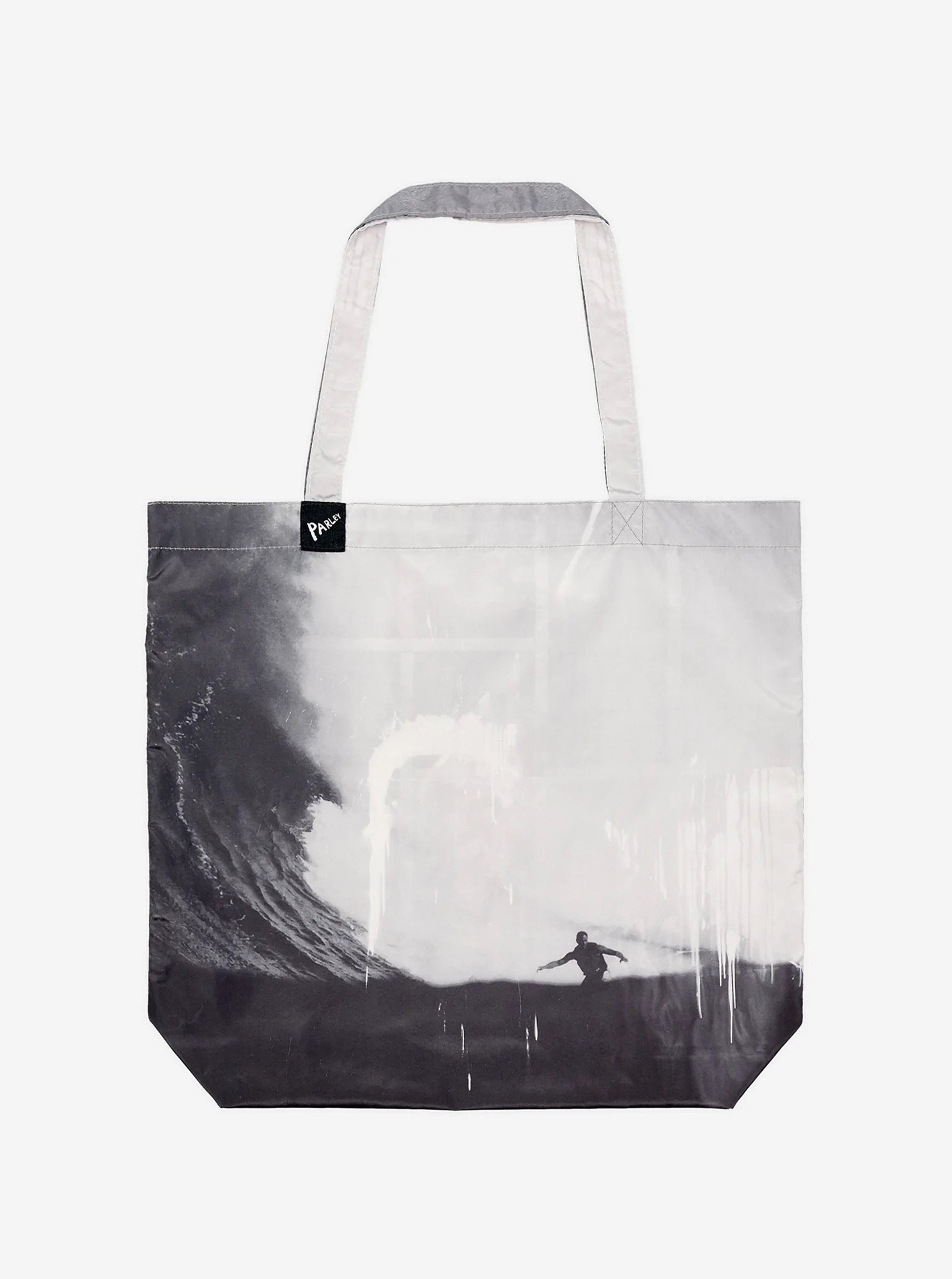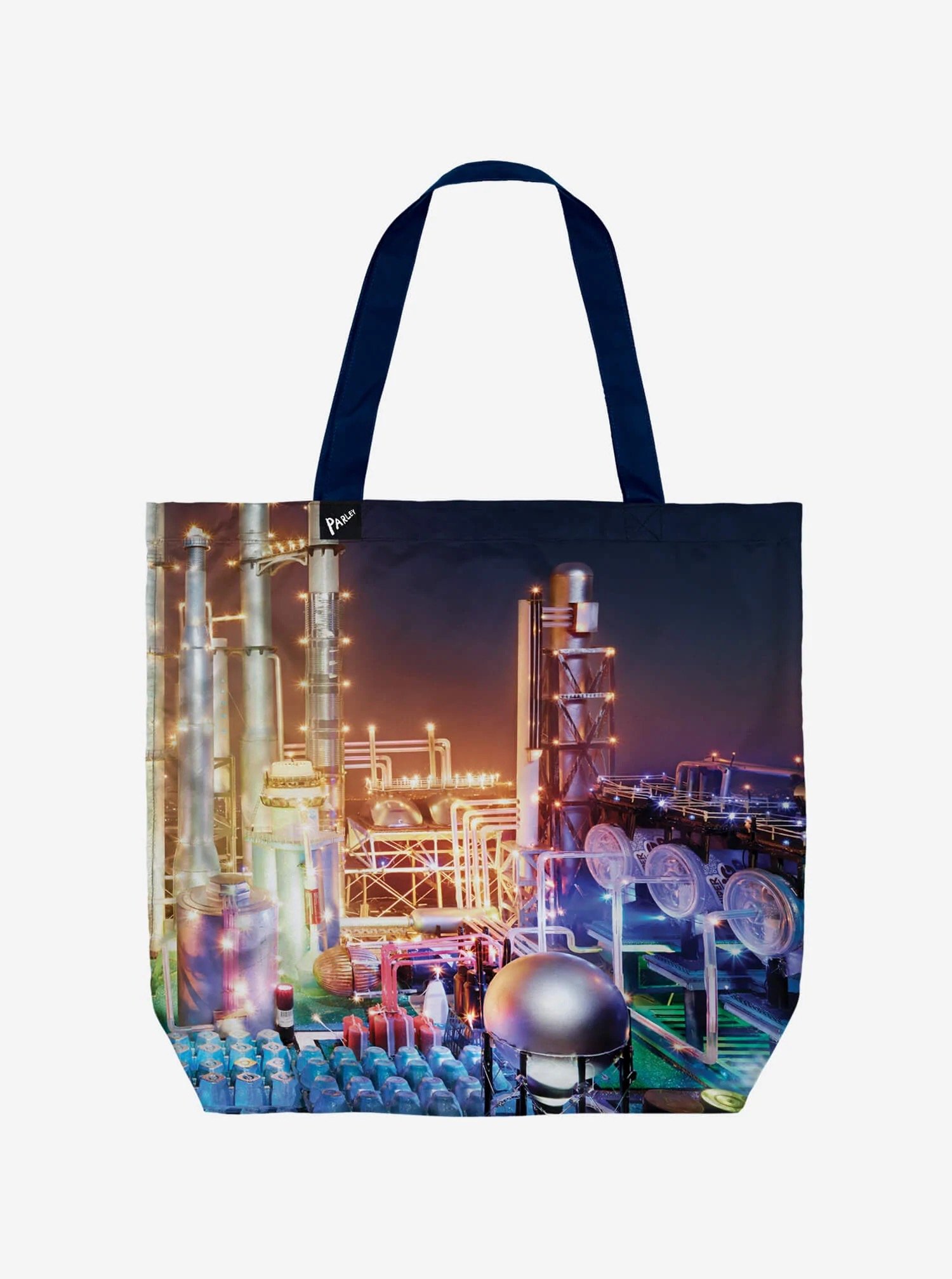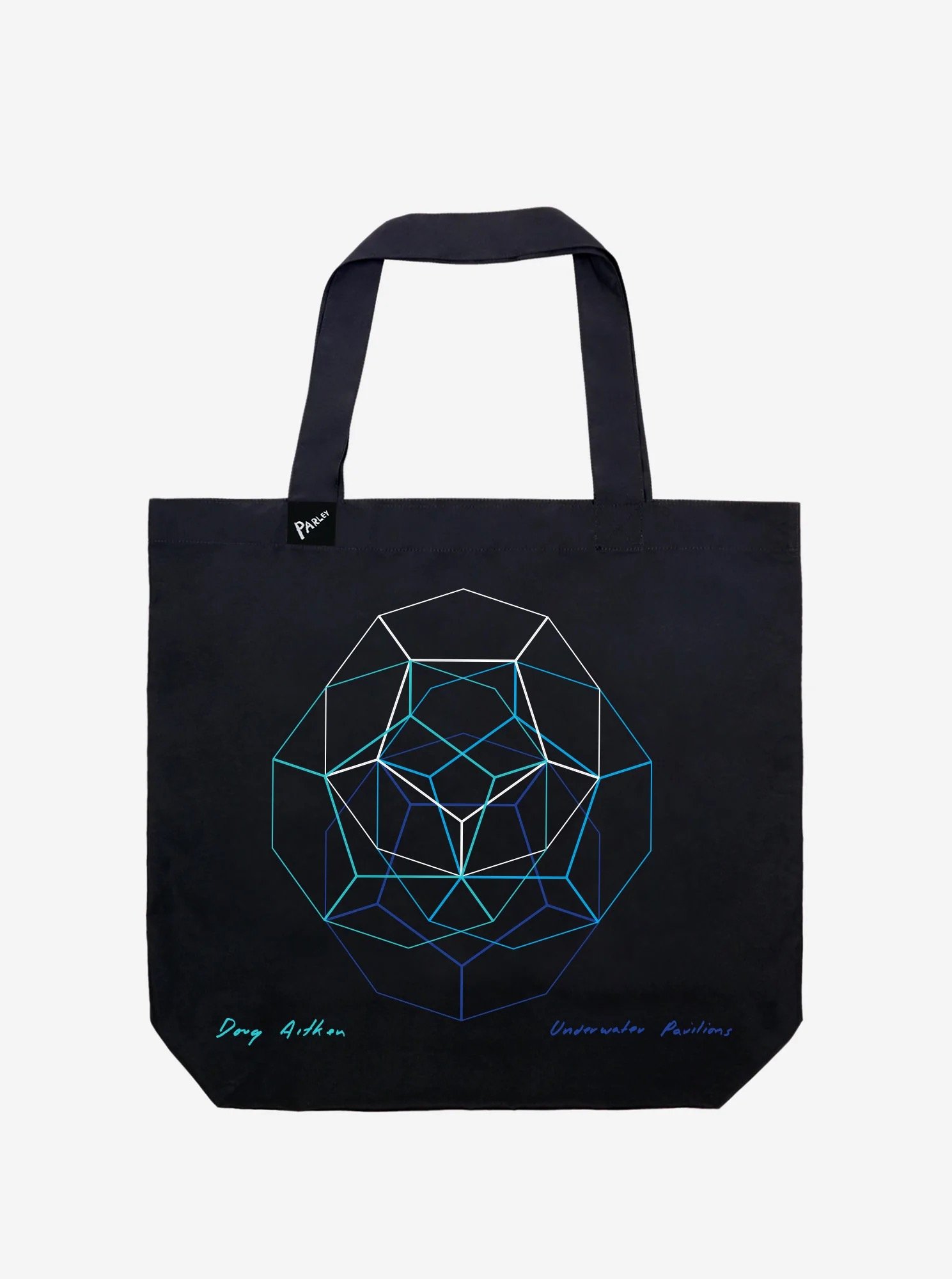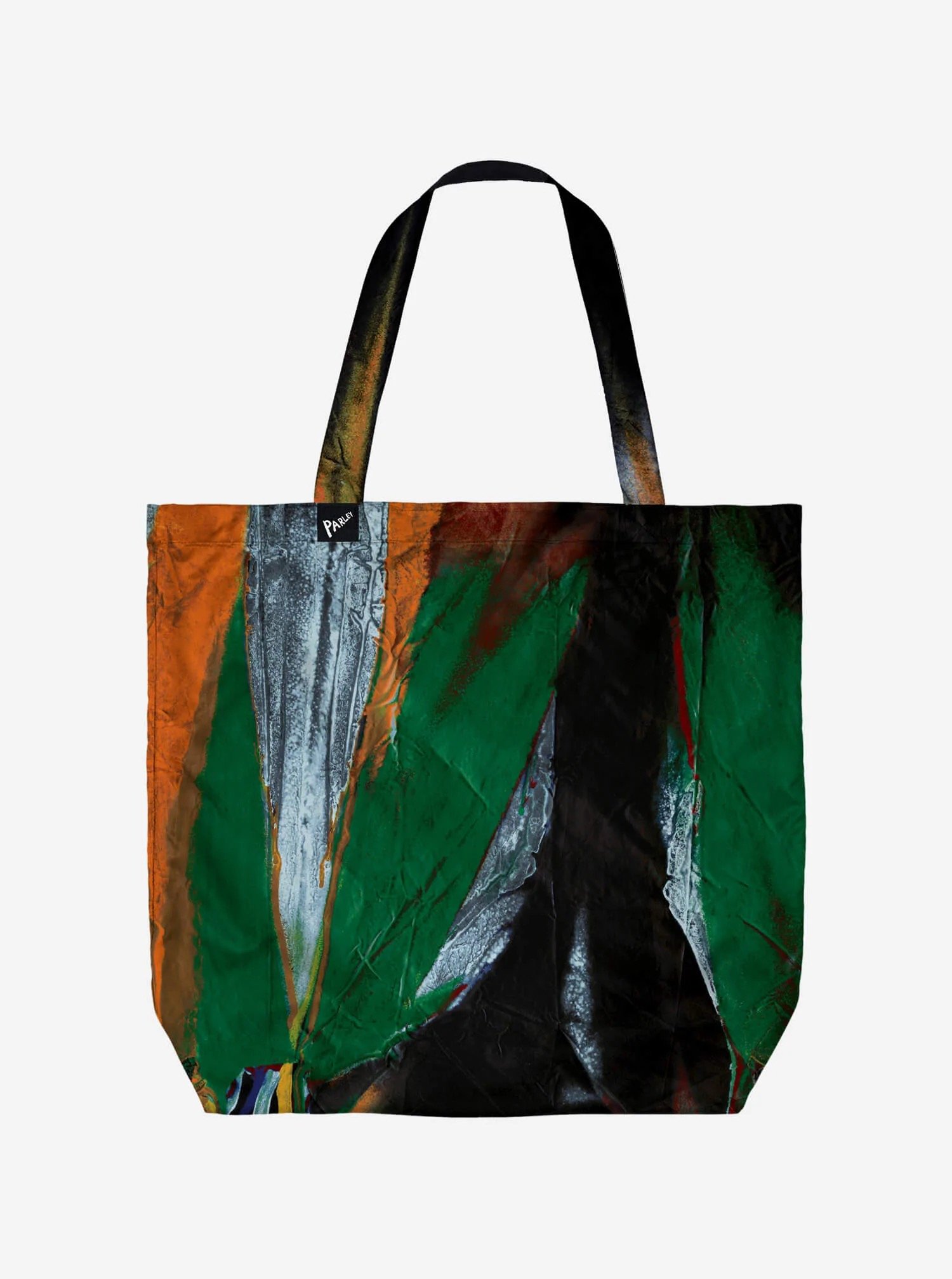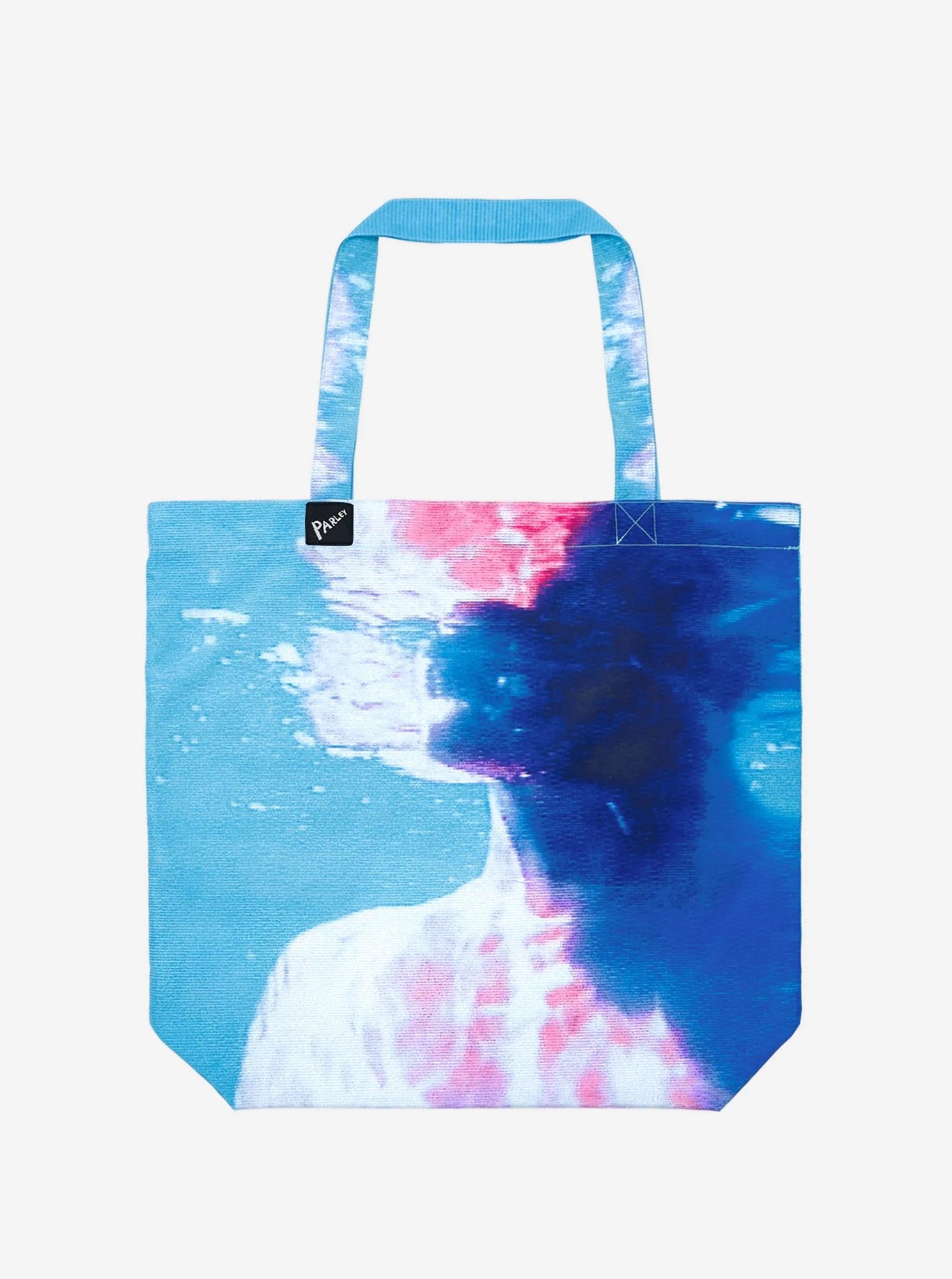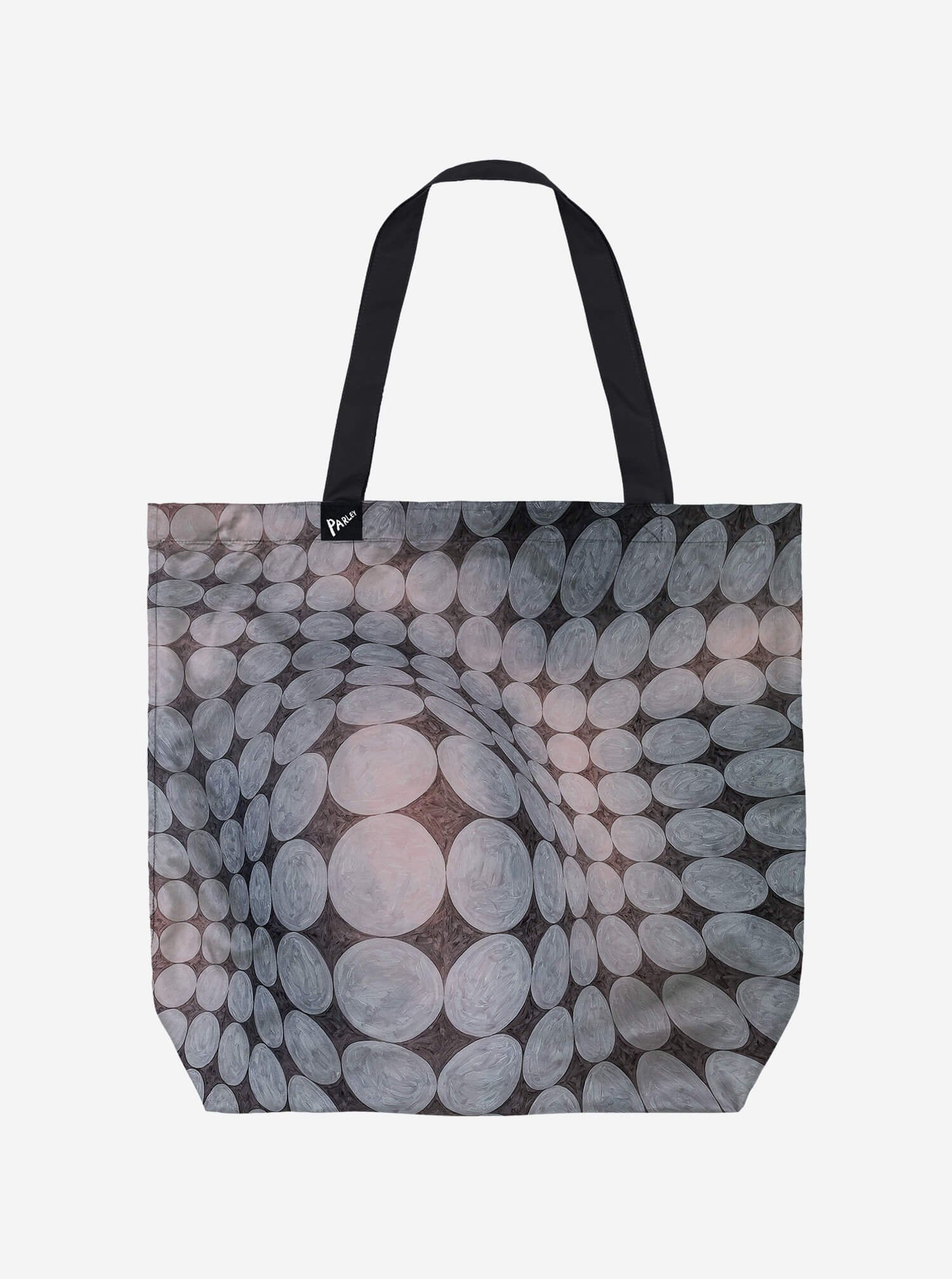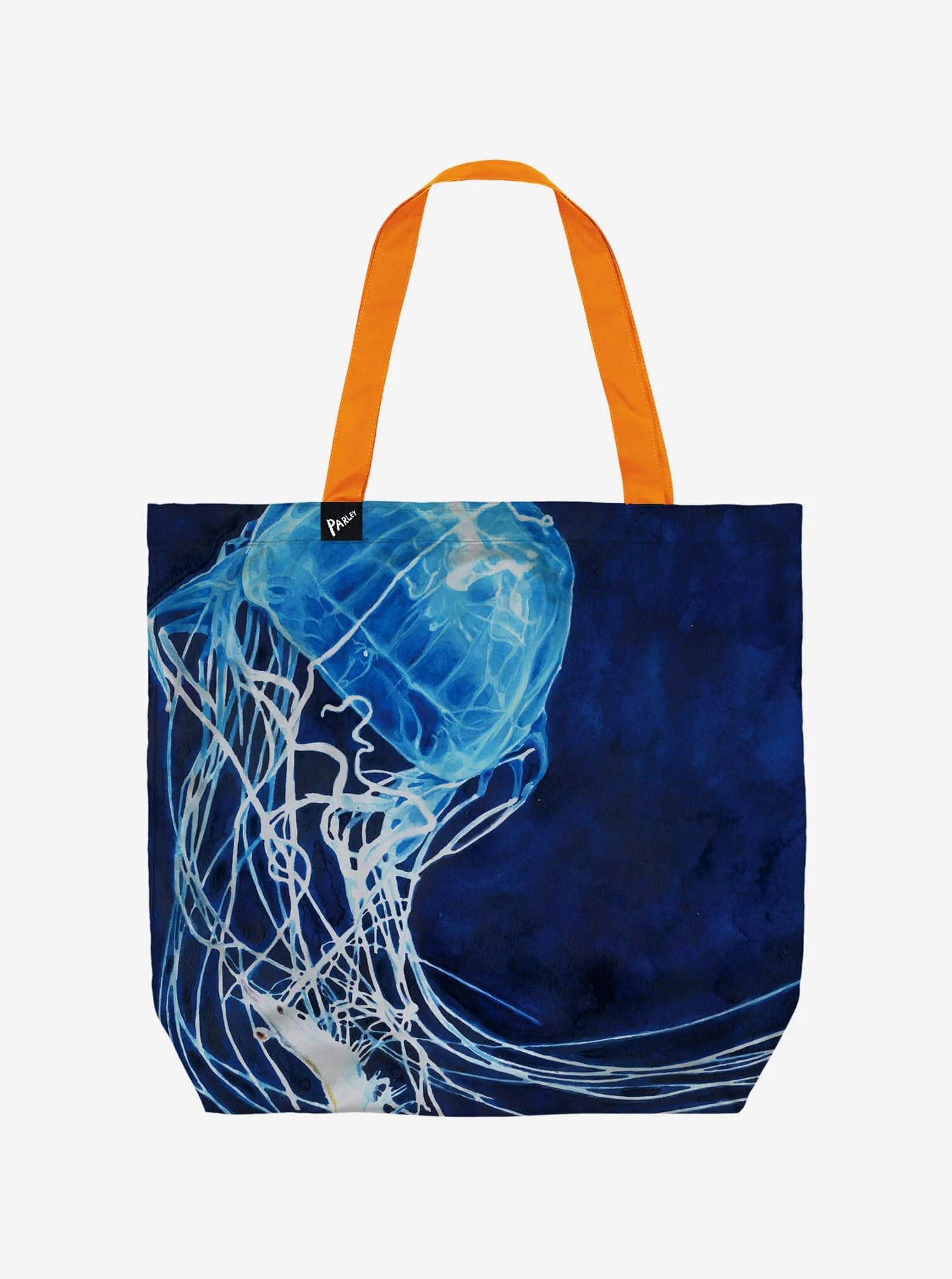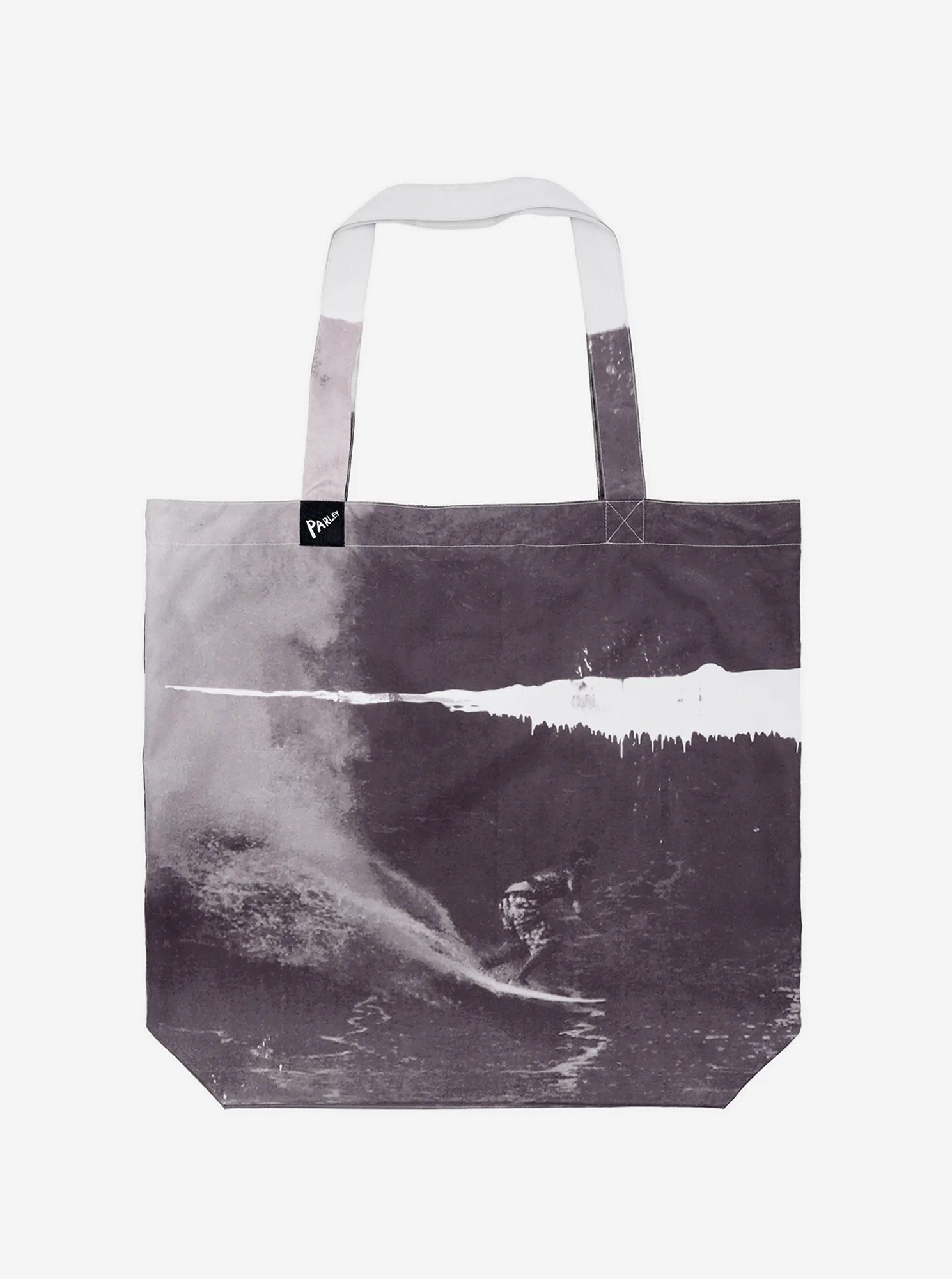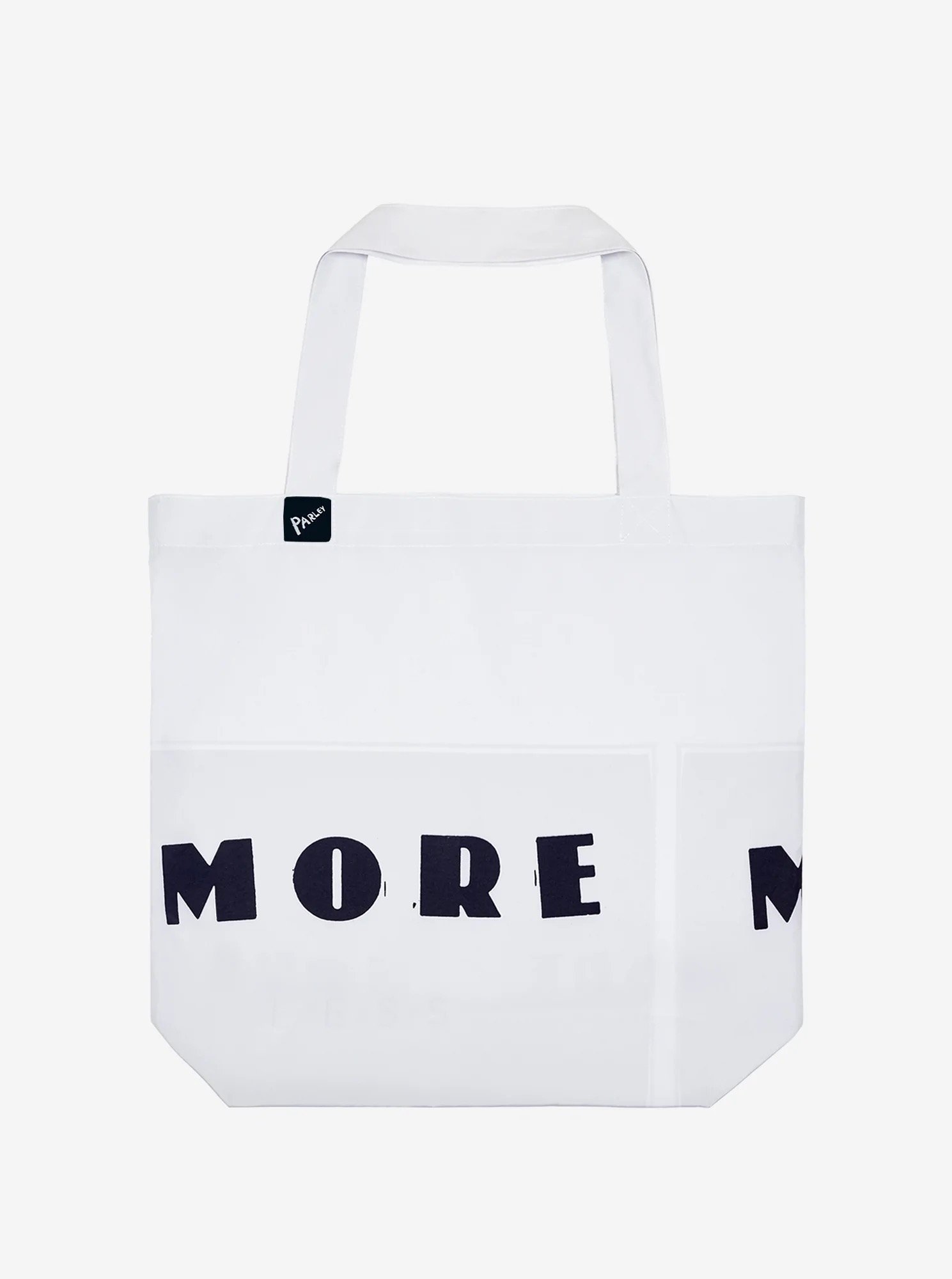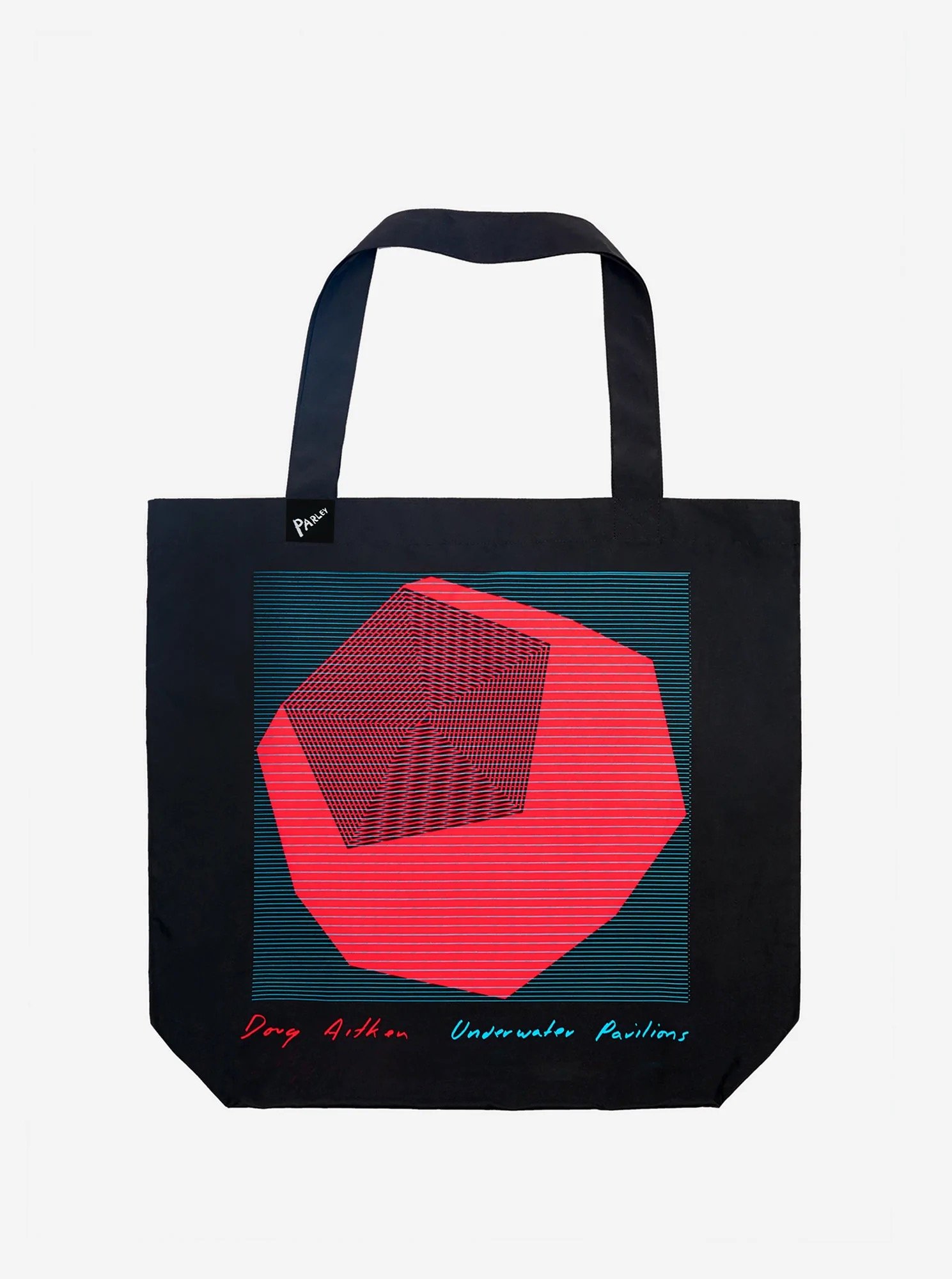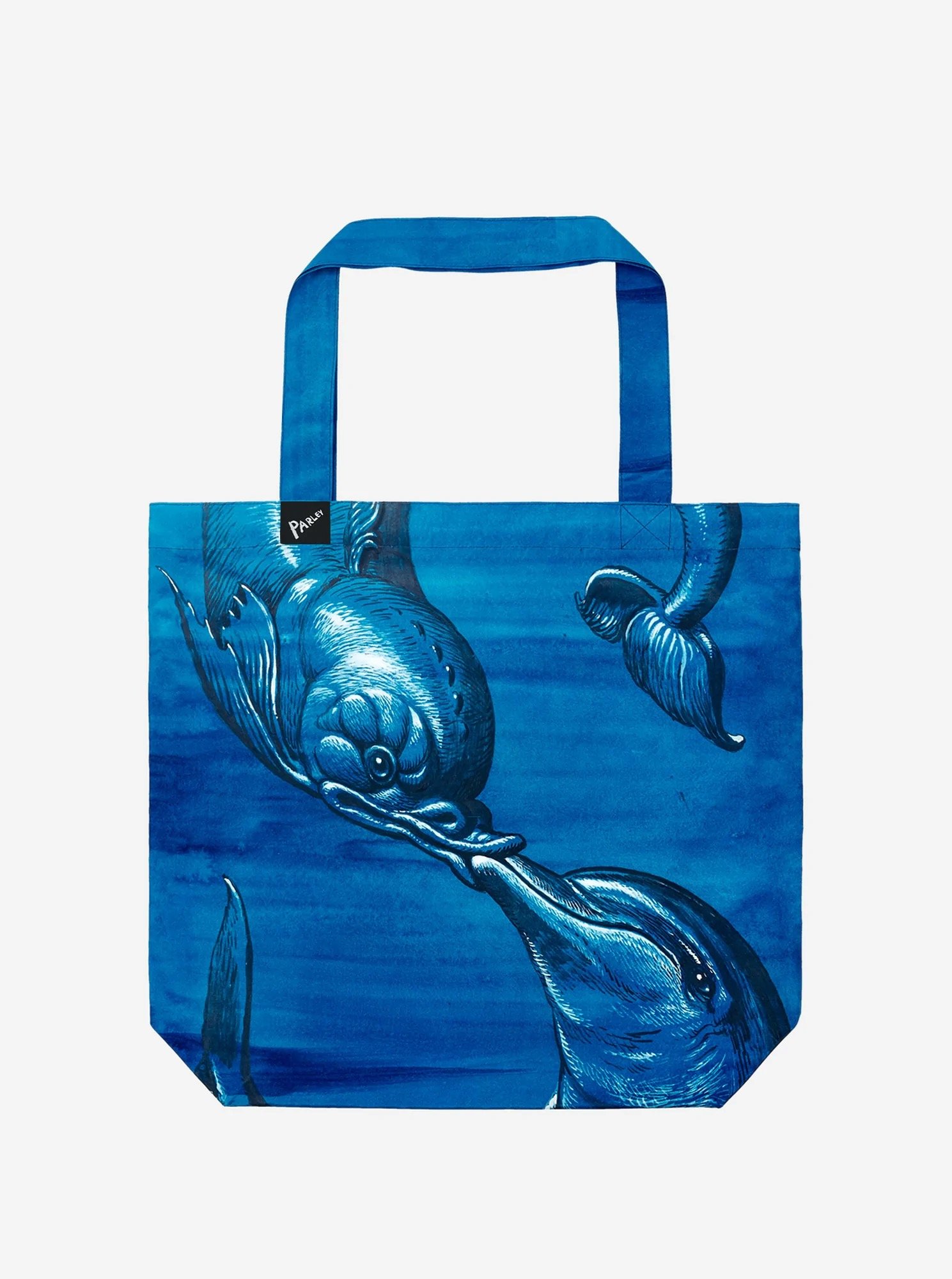PARLEY ARTIST EDITION OCEAN BAGS
Parley joins forces with renowned contemporary artists to launch upcycled Artist EDITION Parley Ocean Bags Each purchase supports our global cleanups in 30 countries and countinG.
Parley has teamed up with leading contemporary artists Doug Aitken, Julian Schnabel, Walton Ford, Jenny Holzer, Pipilotti Rist, Ed Ruscha, Rosemarie Trockel, David Lachapelle, Bharti Kher, Katharina Grosse, Peter Schuyff and Tobias Rehberger to collaborate on a series of limited-edition upcycled tote bags to protect the oceans.
Available in our online shop and distributed exclusively through our partners MoMA Design Store, TATE, and both MUMOK and MAK in Vienna, the bags are made with Ocean Plastic® — a premium material created from upcycled plastic waste recovered from remote islands, waters and coastlines by our growing global cleanup network.
Each Parley Ocean Bag in the artist series is made from approximately 5 intercepted plastic bottles and funds the removal of another 20 pounds of marine plastic waste by the Parley Global Cleanup Network. The limited-edition collection forms part of an ongoing collaboration between Parley and world-renowned contemporary artists, with commissions like Doug Aitken’s Underwater Pavilions using the power of art to drive Parley’s ocean message.
“Parley was founded in the heart of the art community,” explains Cyrill Gutsch, founder and CEO of Parley. “Artists are driven by true intentions, transparent and clear in expressing their agenda — the artist is therefore the strongest messenger and perfect driver for change. I believe art has the power to initiate conversations that might otherwise never take place. Art allows us to rethink, to recalibrate and to collaborate.”
Many of the chosen artists are particularly passionate about the oceans, with new and existing artwork acting as a powerful call-to-action for the oceans. Walton Ford’s underwater imagery is drawn from a practice rooted in the tradition of natural history drawings, while Doug Aitken’s designs take inspiration from his undersea collaboration with Parley.
“When we talk about the oceans and we look at the radical disruption we’ve created within the sea, we’re not quite aware yet how much that’s going to affect us and our lives on land,” explains Aitken. “The ramifications of that are immense. This is one thing which cannot be exaggerated.”
Julian Schnabel, a long-term supporter of Parley, contributed a bespoke artwork to the project, along with works from his seminal Surf Paintings series. As he explains, “the ocean, the sea, and the waves have had a big influence on my life. It is so important that people finally comprehend that there is something bigger than them. The ocean teaches us to be humble, to respect it, and to accept that we are all part of something greater.”
Why bags?
In the early 1960s, a Swedish engineer named Sten Gustaf Thulin figured out how to make a one-piece bag from a flat tube of high-density polyethylene — and the plastic bag was born.
Today, we use 2 million of them around the world every single minute, and only 5% are recycled. The rest end up littering our streets or being dumped in landfill, where they can be carried away by the wind. Once they reach our waterways and oceans, plastic bags become silent killers – entangling marine life, breaking into microplastics and becoming ‘food’ for sea turtles, which mistake bags for jellyfish and other gelatinous sea creatures.
We created this situation relatively recently, and we are already beginning to reverse it. From Kenya to New York, lawmakers are enacting bans on single-use plastic bags and other items – and shoppers are changing their habits. Our easy-to-pack tote bags are made with Ocean Plastic® to support the new consumer mindset of refusing plastic bags. Each Parley Ocean Bag is made from about 5 intercepted plastic bottles and helps fund our growing Global Cleanup Network.

